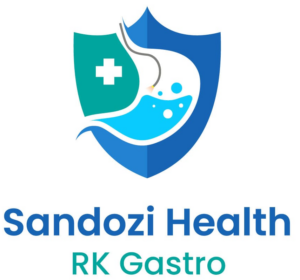What is Alcoholic Liver Disease?
Alcoholic liver disease refers to liver damage resulting from chronic alcohol abuse.
This condition can lead to serious complications, such as cirrhosis, the final stage of liver disease.
While not all heavy drinkers will develop alcoholic liver disease, the likelihood increases with both the quantity and duration of alcohol consumption.
This disease is most frequently seen in individuals between the ages of 40 and 50, with men being at a higher risk; however, women may develop the condition after less alcohol exposure.
Furthermore, genetic factors may contribute to an increased risk.
What Are the Symptoms?
Symptoms may vary and can be mild or absent initially.
Early signs of alcoholic liver disease include:
- Loss of energy
- Poor appetite and weight loss
- Nausea
- pain in abdomen
- Tiny, red spider-like blood vessels on the skin
- As the disease advances, symptoms may become more severe and include:
- Swelling in the legs (oedema) and abdomen (ascites)
- Yellowing of the skin and eyes (jaundice)
- Redness on the palms of the hands
- Impotence and breast swelling in men
- Easy bruising and abnormal bleeding
- Confusion or cognitive difficulties
- Pale or clay-coloured stools
- Gastrointestinal bleeding
How Is It Diagnosed?
Your doctor will perform a physical examination to look for indicators of liver damage, including:
- Enlarged liver or spleen
- Excess breast tissue in men
- Swelling in the abdomen
- Reddish palms and spider-like blood vessels
- Yellowing of the skin or eyes
Diagnostic tests may include:
- Complete blood count (CBC)
- Liver function tests
- Coagulation studies
- Liver biopsy
- Imaging tests like abdominal CT scans or ultrasounds
What Treatment Options Are Available?
Treatment begins with lifestyle changes:
- Cease alcohol consumption
- Maintain a low-salt, healthy diet
- Get vaccinated against diseases like influenza and hepatitis
- Discuss all medications with your doctor
Medications may include:
- Vitamin K to prevent bleeding
- Antibiotics for infections
- Treatments for complications like oesophagal varies and fluid buildup
In severe cases, a liver transplant may be necessary, especially for individuals who have abstained from alcohol for at least six months.
How Can You Prevent Alcoholic Liver Disease?
Open communication with your doctor about your alcohol intake is crucial.
They can guide you on safe drinking limits and help you make healthier choices.
If you or someone you know is struggling with alcohol-related health issues, Sandozi Health Clinic is here to help. Our dedicated team provides comprehensive evaluations and tailored treatment plans to support your recovery. Contact us today to prioritize your liver health and overall well-being!



